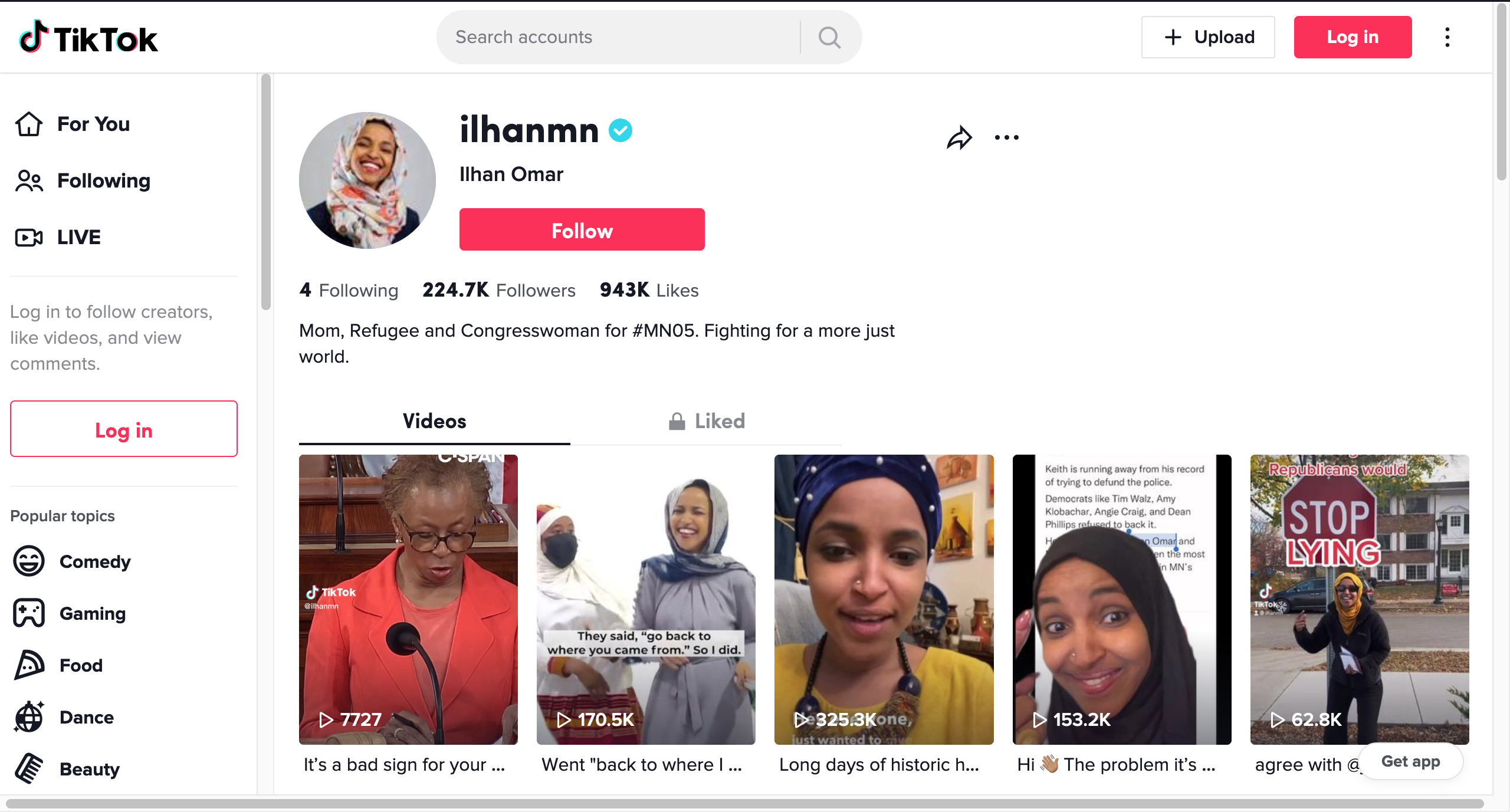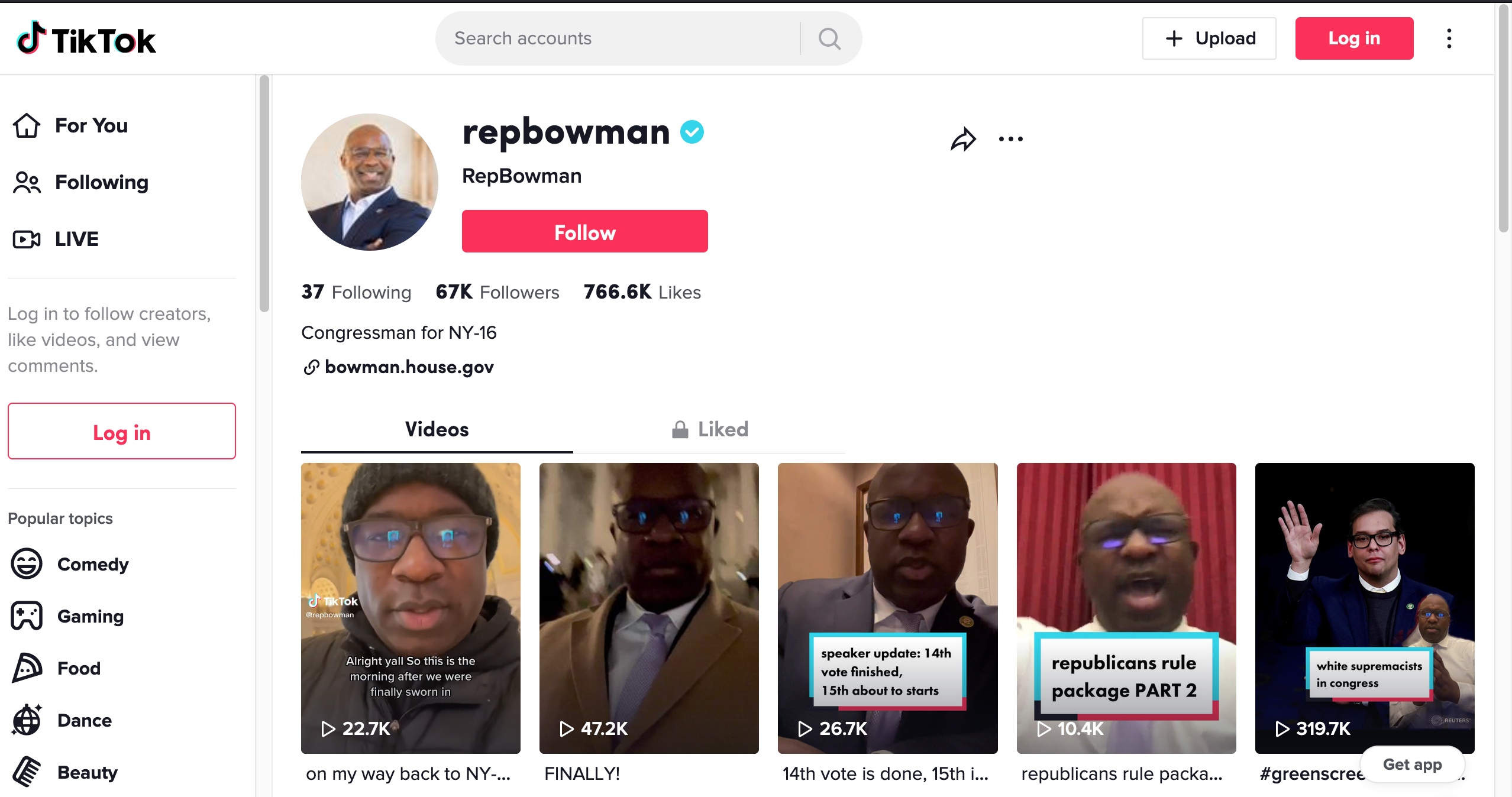In order to protect national security, Congress passed a measure in December that made it illegal to use TikTok on some government-owned devices. America’s position against possible breaches in cyber safety and the preservation of sensitive information is strengthened by this historic decision.
Democratic Reps. Ilhan Omar and Jamaal Bowman have recently been active on the app, despite the fact that a resolution was passed to forbid the usage of the popular platform.
TRENDING: NEW Trump Diamond Bills Will Drive Liberals Crazy!
Politicians are increasingly using TikTok, a well-liked social media tool, to interact with younger people and bridge the generational divide. Modern leaders are demonstrating their openness to adopt new technology via this creative strategy in an attempt to remain connected in the hectic digital world of today.
Despite concerns over TikTok’s privacy practices, some lawmakers are using the well-known social media site to interact with voters and further their causes.
With limited exceptions for national security and legal research, a bipartisan spending bill that forbids the use of TikTok by the government on executive branch mobile devices was passed by Congress on December 23. However, Representatives Ilhan Omar of Minnesota and Jamaal Bowman have defied the ban by continuing to express themselves through their own profiles ever since. Despite broad attempts to eliminate its role in American politics, several current members and previous legislators nevertheless have accounts on this increasingly popular site.
In a display of bipartisan cooperation, the Senate and House moved quickly in December to prohibit TikTok on devices provided for official work in order to safeguard government personnel from possible online threats. Due to a “high risk to users,” presented by its usage, Congress ordered that all members and employees remove the app from their work phones. This was done at the request of its internal cybersecurity office.
Through the parent firm of the app TikTok, ByteDance, the U.S. has taken steps to guard against possible threats of data monitoring, espionage, and covert manipulation by the Chinese government. Growing evidence supporting these initiatives raises questions about how American consumers’ private information may be used against them without their knowledge or consent.
“We do have national security concerns,” According to NBC News, Christopher Wray, the FBI director, stated. “They include the possibility that the Chinese government could use it to control data collection on millions of users.”
Reps. Ilhan Omar and Jamaal Bowman from New York, Katie Porter and Tony Cardenas from California, former Rep. Tim Ryan (now running for Senate), and Rep. Cori Bush from Missouri, who runs an unverified account, are just a few Democratic members of Congress who have firmly established their presence on TikTok. All of them use the platform to share interesting content with constituents outside of the usual channels.
Recently, TikTok unveiled a ground-breaking feature that enables any user to become certified. Users may now join the ranks of popular accounts and gain higher recognition within the TikTok community via identification and notability verification.
A law prohibiting TikTok on certain government equipment received an extraordinary unanimous vote on December 23 when all six legislators voted in favor of it. Omar and Bowman have since expressed their ideas online, further proving their dedication to the cause.

On January 6, the House of Representatives was in disarray as Congress deliberated over who would be the new Speaker and whether or not to adjourn for another day. However, Omar posted a compelling footage from C-SPAN that put everything into perspective!
“It’s a bad sign for your majority when the only consensus you can find is to adjourn,” the caption reads.

Bowman used social media two years after the Capitol Riots to remember and reflect on a crucial voting period that would determine the new House leadership.
Due to security concerns, a growing number of governments are adopting a position against the social networking site and blocking it on government-owned devices. The most recent restrictions were passed expressly in South Dakota and Rapid City, although Texas, Utah, Georgia, Maryland, and Nebraska have all followed this pattern.
TikTok is under attack from Republican legislators who want to outlaw it, while progressive politicians view it as a way to engage and connect with Gen Z voters. The 119th Congress continues to discuss whether or not it is effective in this highly political atmosphere.
For their opinions on the topic, five congressmen could not be reached, including Rep. Ryan, who was completely unreachable.





